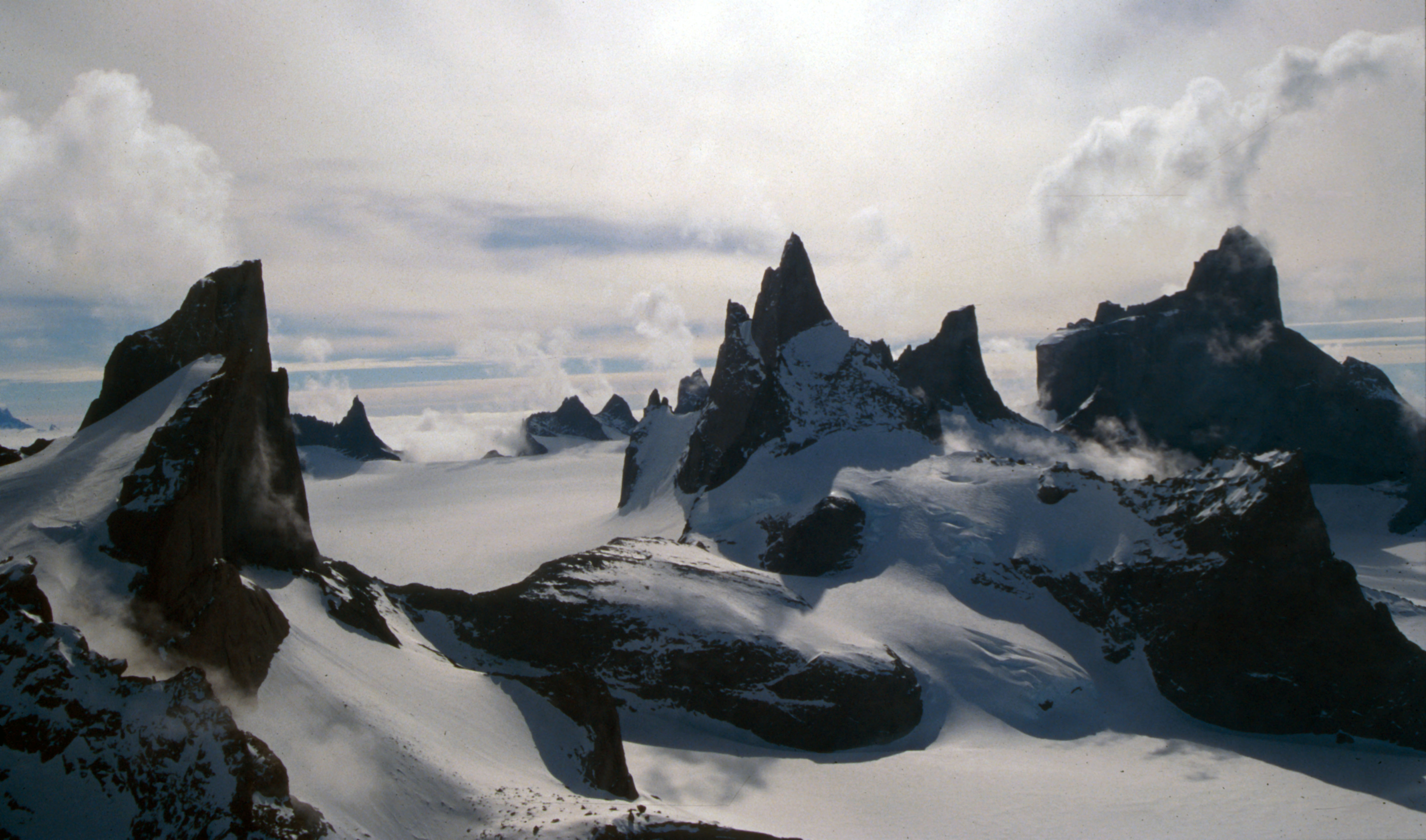|
Tunga Spur
Tunga Spur is a prominent rock spur extending from the Kirwan Escarpment just southwest of Gommen Valley, in Queen Maud Land Queen Maud Land ( no, Dronning Maud Land) is a roughly region of Antarctica claimed by Norway as a dependent territory. It borders the claimed British Antarctic Territory 20° west and the Australian Antarctic Territory 45° east. In addit .... Mapped by Norwegian cartographers from surveys and air photos by Norwegian-British-Swedish Antarctic Expedition (NBSAE) (1949–52) and additional air photos (1958–59), and named Tunga (the tongue). Ridges of Queen Maud Land Princess Astrid Coast {{PrincessAstridCoast-geo-stub ... [...More Info...] [...Related Items...] OR: [Wikipedia] [Google] [Baidu] |
Kirwan Escarpment
The Kirwan Escarpment ( no, Kirwanveggen) is a prominent northwest-facing escarpment which lies south of the Penck Trough in Queen Maud Land, Antarctica. The escarpment is featured by moderate-height cliffs and prominent rock spurs interspersed with glaciers and steep ice slopes and trends northeast–southwest for about . At least the northern end of this feature (Neumayer Cliffs) was included in the aerial photography of the general area by the Third German Antarctic Expedition (1938–39), but the maps resulting from that expedition do not portray the escarpment properly. The escarpment was mapped by Norwegian cartographers from surveys and air photos (1958–59) and named for Laurence P. Kirwan, Director of the Royal Geographical Society The Royal Geographical Society (with the Institute of British Geographers), often shortened to RGS, is a learned society and professional body for geography based in the United Kingdom. Founded in 1830 for the advancement of geographical ... [...More Info...] [...Related Items...] OR: [Wikipedia] [Google] [Baidu] |
Gommen Valley
Gommen Valley () is an ice-filled valley between Tunga Spur and Kuven Hill, near the southwest end of the Kirwan Escarpment in Queen Maud Land, Antarctica. It was mapped by Norwegian cartographers from surveys and air photos by the Norwegian–British–Swedish Antarctic Expedition The Norwegian–British–Swedish Antarctic Expedition (also known as NBSX or NBSAE) (1949–1952) was the first Antarctica expedition involving an international team of scientist A scientist is a person who conducts Scientific method, scienti ... (1949–52) and from additional air photos (1958–59), and named Gommen (the gum). References Valleys of Queen Maud Land Princess Martha Coast {{PrincessMarthaCoast-geo-stub ... [...More Info...] [...Related Items...] OR: [Wikipedia] [Google] [Baidu] |
Queen Maud Land
Queen Maud Land ( no, Dronning Maud Land) is a roughly region of Antarctica claimed by Norway as a dependent territory. It borders the claimed British Antarctic Territory 20° west and the Australian Antarctic Territory 45° east. In addition, a small unclaimed area from 1939 was annexed in June 2015. Positioned in East Antarctica, it makes out about one-fifth of the continent, and is named after the Norwegian queen Maud of Wales (1869–1938). In 1930, the Norwegian Hjalmar Riiser-Larsen was the first person known to have set foot in the territory. On 14 January 1939, the territory was claimed by Norway. On 23 June 1961, Queen Maud Land became part of the Antarctic Treaty System, making it a demilitarised zone. It is one of two Antarctic claims made by Norway, the other being Peter I Island. They are administered by the Polar Affairs Department of the Norwegian Ministry of Justice and Public Security in Oslo. Most of the territory is covered by the east Antarctic ic ... [...More Info...] [...Related Items...] OR: [Wikipedia] [Google] [Baidu] |
Ridges Of Queen Maud Land
A ridge or a mountain ridge is a geographical feature consisting of a chain of mountains or hills that form a continuous elevated crest for an extended distance. The sides of the ridge slope away from the narrow top on either side. The lines along the crest formed by the highest points, with the terrain dropping down on either side, are called the ridgelines. Ridges are usually termed hills or mountains as well, depending on size. Smaller ridges, especially those leaving a larger ridge, are often referred to as spurs. Types There are several main types of ridges: ;Dendritic ridge: In typical dissected plateau terrain, the stream drainage valleys will leave intervening ridges. These are by far the most common ridges. These ridges usually represent slightly more erosion resistant rock, but not always – they often remain because there were more joints where the valleys formed or other chance occurrences. This type of ridge is generally somewhat random in orientation, often ... [...More Info...] [...Related Items...] OR: [Wikipedia] [Google] [Baidu] |

